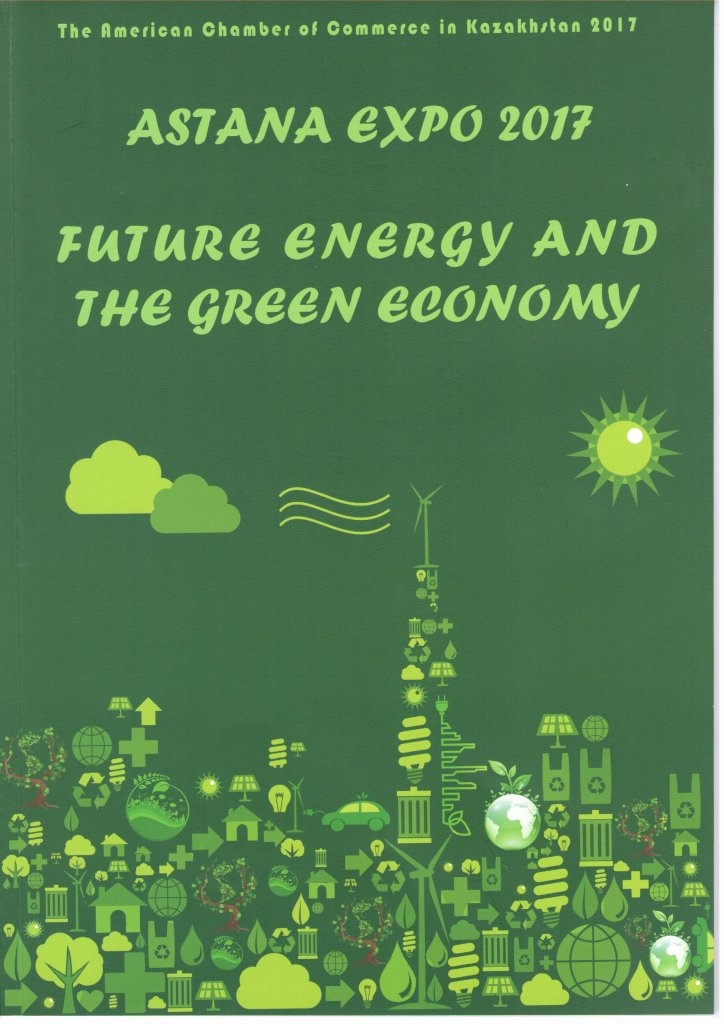
Kazakhstan's 2020 Strategic Development Plan states that the use of renewable resources and energy sources is an effective method to diversity the country's economy. Kazakhstan is therefore creating incentives to develop wind power, solar and geothermal energy, and to introduce new technologies that will effectively use the country's water resources to provide the population with drinking water.
According to the Strategic Plan, by 2020 the percentage of alternative energy sources in total energy consumption should exceed 3%. In the long-term, wind power has the greatest potential, according to the Renewable Energy Sources Settlement and Financial Center. Over a territory of 50 thousand square kilometers (2% of Kazakhstan's area), the average annual wind speed exceeds 7 meters per second. This territory is sufficient to generate one trillion kilowatt hours per year - many times greater than the country's electricity needs.
The main potential of hydroelectric power plants is concentrated in the Almaty region, where it is planned to build 11 hydroelectric power stations by the year 2020. The largest of these, with a capacity of 60.8 megawatts, will be built on the Shelek River. In addition, hydroelectric power stations will begin to operate in the East Kazakhstan, Zhambyl, and South Kazakhstan oblasts. Solar energy will be used to produce electricity in Almaty, Zhambyl and Kyzylorda regions. The most powerful power plant - at 24 megawatts - will be built in the Zhambyl region [1].
Incentives for construction of renewable energy facilities are provided under Kazakhstan's Law On Support for Renewable Energy Sources dated 4 July 2009. Under this Law, support takes the following forms:
Investment preferences for legal entities engaged in the design, construction and operation of renewable energy facilities
Investment preferences are targeted advantages for investment projects such as: investment priority projects, investment strategic projects, special investment projects, and other investment projects. Investment preferences of the following types are provided for projects including investment priority projects:
1) Exemption from customs duties and value-added tax on imports;
2) State in-kind grants.
The following investment preferences are provided for investment priority projects:
1) Preferences for taxes;
2) Investment subsidies.
Investment preferences are granted on the basis of an investment contract concluded between the Ministry of Investment and Development of Kazakhstan and a Kazakhstan legal entity implementing an investment project. The legal entity must comply with Kazakhstan's Entrepreneurship Code.
Centralized sale and purchase of electricity generated by renewable energy sources
According to the Law On Support for Use of Renewable Energy Source, an organization producing energy from renewable energy sources has the right to sell this electricity:
1) To the Renewable Energy Sources Settlement and Financial Center at the fixed rate, effective on the date of conclusion of the contract of sale, subject to indexation;
2) To consumers at contract prices based on Kazakhstan's electricity legislation.
Fixed tariffs for supply of electrical energy produced by renewable energy sources were approved by a Government Decree dated 12 June 2014. For example, the fixed tariff for energy from wind farms (excluding the EXPO-2017 wind farm with a capacity of 100 MW) is 22.68 KZT / kWh excluding VAT. Fixed tariffs are subject to indexation and adjustment in the order established by the Government of Kazakhstan.
The Settlement and Finance Center for Support of Renewable Energy Sources sells energy produced using renewable energy sources to “conditional consumers”, i.e. (i) energy-producing organizations that use coal, gas, sulfur-containing raw materials, oil products and nuclear fuel; (ii) subjects of the electric energy market that have acquired electric energy from outside Kazakhstan, or (iii) hydroelectric power plants with facilities located in one hydroelectric complex with a total capacity of over thirty five megawatts except for those commissioned after 1 January 2016.
The costs for a “conditional consumer” to purchase electricity produced by renewable energy sources from the Renewable Energy Sources Settlement and Finance Center are taken into account when determining the value of the cap tariff for electricity. The cap tariff is the maximum tariff for which electricity is sold by “conditional consumers”.
Organizations using renewable energy sources are exempt from payment for services of energy transmission organizations when delivering electricity and heat from renewable sources.
Targeted assistance to individual consumers for purchase of installations for use of renewable energy sources
Individual consumers of heat and electricity are individuals or legal entities that use heat and electricity from the renewable energy facility operating autonomously in non-electrified settlements and (or) settlements where centralized power supply is not economical.
Targeted assistance consists in the payment to individual consumers of fifty percent of the cost of facilities using renewable energy sources with a total capacity of not more than five kilowatts. This part of the cost is reimbursed after the facility is commissioned.
To receive targeted assistance, an individual consumer submits a request to a commission, including the contract for purchasing a Kazakhstan production facility and acceptance of that facility into operation. An individual consumer who has received targeted assistance for purchase of a renewable energy facility has no right to sell electricity and /or heat produced at this facility to other consumers.
************************************************************************************
Thus, public support for use of renewable energy sources includes incentives both for entities using renewable sources of energy for commercial purposes and for those generating energy from these sources for domestic consumption.
These incentives constitute an important contribution to development of Kazakhstan's Green Economy, which promotes rational use of minerals that are sources of fossil fuels, reduces of environmental pollution, and provides heat and electricity to people living in areas of the country where a centralized power supply is not available.
[1] http://www.rfc.kegoc.kz/vozmozhnosti-vozobnovlyaemyx-istochnikov-energii-v-kazaxstane/
The article was originally published in the American Chamber of Commerce in Kazakhstan magazine, which was dedicated to Astana EXPO 2017.
Download article
